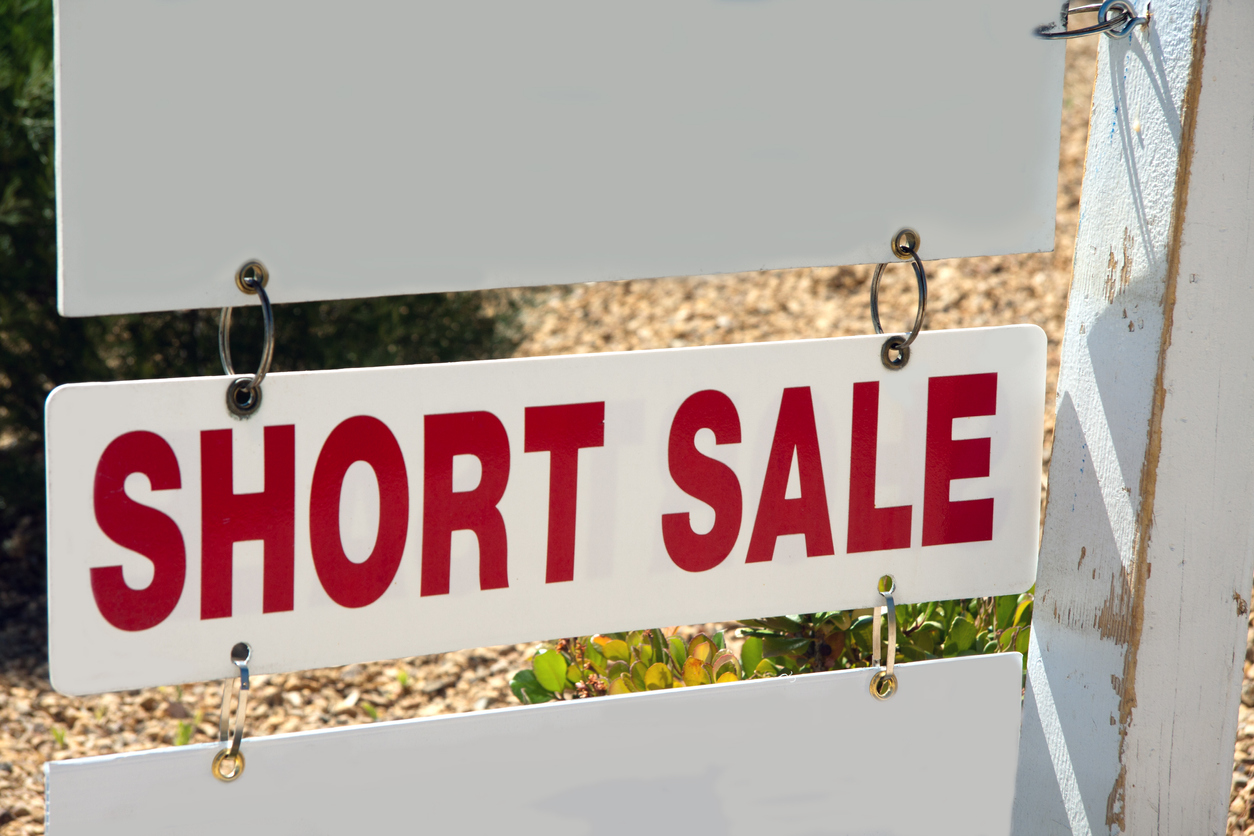A short sale can be a great way to get a good deal on a property. In this article we’re going to discuss how to finance a short sale house purchase.
Short sale financing will be unique to each situation, and the process isn’t always straightforward.
Prerequisites to Finance a Short Sale
Bank Authorization for a Short Sale
The steps below assume the seller has already been in discussion with his or her mortgage lender about selling the house short. Normally, banks require an application process to sell a house short. The seller must be authorized by the bank to sell a house short, because the bank will take a financial loss.
There must be a significant reason for a bank to accept a short sale. Typically this means missed payments, a major health or employment problem, and the home is far underwater from a market value vs. mortgage balance standpoint.
Verification of Short Sale Eligibility
Your job is to verify with the bank that owns the mortgage that the seller is able to sell the property short. You need to verify this before making an offer.
The seller can provide a short sale approval letter from the bank, or can put you directly in contact with the bank’s agent to confirm the seller is eligible.
Steps to Finance a Short Sale
Lender Pre-Qualification
Pre-qualifying for a loan is a necessary step in the loan approval process. Your credit history, income and monthly debt will determine your spending budget. If qualified, you will receive an estimated maximum sale price to buy a short sale property.
Due to the potential longer duration of short sales, maintaining a good credit rating will ensure minimal changes in your interest rate or loan approval.
Choosing a Loan Type That Works for Short Sale Houses
Short sale homes can come with physical condition issues, so financing them can be a bit more complex than a home in good condition. Because short sales are sold “as is” many lenders will not approve a mortgage on a house with significant problems. So financing options are available to buyers of short sale properties?
Short sale houses often have missing light fixtures, holes in walls, carpets in poor condition, or water heater issues. Appraisers will note all these issues in their Appraisal Reports.
The following loan options are available to buyers looking to purchase a short sale:
- Balance Sheet Loans
- Hard Money Loans
- Cash Out Refinances
- Construction Loans
Balance Sheet Loans for Short Sales
Balance sheet loans are “non-conforming” loans, which means that they are more flexible than a typical home mortgage. These loans are kept on the lender’s balance sheet as an investment. Most banks and mortgage lenders offer short sale balance sheet loans.
Generally, a bank will not approve a balance sheet loan on a house with major physical problems like a cracked foundation, sagging walls or holes in the roof. Banks want good assets on their balance sheets, not risky liabilities. So a balance sheet loan is best if the house is in moderately good condition or better.
Find Foreclosed Properties In Your Area
Hard Money Loans for Short Sales
Hard money loans are a short-term loan option for investors who plan to purchase and sell a property within 1-3 years. Due to their short-term nature, hard money lenders will often issue loans with low qualification requirements and interest rates from 7-15%.
Hard money loans are is particularly good for fix-and-flip investors who buy short sales and rehab them. If a property is in poor condition, then you can expect to finance up to 80% of the after-repair-value of the property with a hard money loan.
Cash Out Refinances for Short Sales
Cash out refinances are good options for longer-term, buy-and-hold investors who own existing properties with significant equity. The investor takes out a new loan on an existing “in the money” property to leverage the equity and obtain cash.
Cash out refinances use existing property as collateral. In order for this financing method to work, it is important that investors have 30-40% of equity in the existing property they’re using to finance the new short sale purchase.
Construction Loans for Short Sales
A construction loan is ideal when a short sale property requires significant rehab work to bring it up to market condition. Construction loans are also ideal for taking a property “up market” by adding on rooms, upgrading the interior, etc.
A major benefit of a construction loan is its flexibility. It can be combined with a standard mortgage, hard money loan or cash out refinance loan. The payment terms and series of funding steps can be designed to reflect a 3-12 month construction project. Construction loans require a business plan, architecture diagrams and cash flow projections. In most cases you will need to identify the contractors and provide written estimates for all the work and materials. The loan is secured by the property and materials used.
Financing a Short Sale – In Summary
When purchasing a short sale property to flip, you need to consider how to finance the short sale, and the type of loan you will use. Your choices include a balance sheet loans, hard money loans, cash out refinance loan and a construction loan.
|
FIND FORECLOSURES – Buy real estate up to 50% off at Foreclosure.com |
< Back to Flipping a Foreclosed House | NEXT: How to Buy a Short Sale House >

